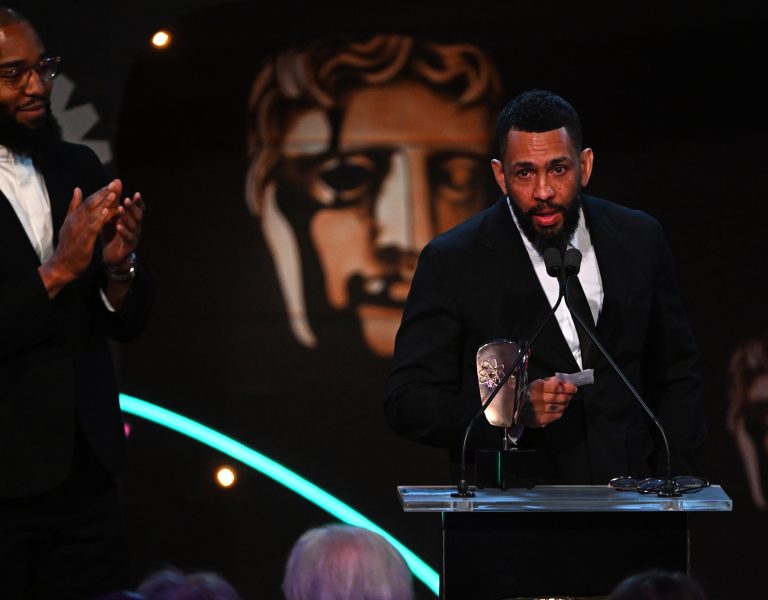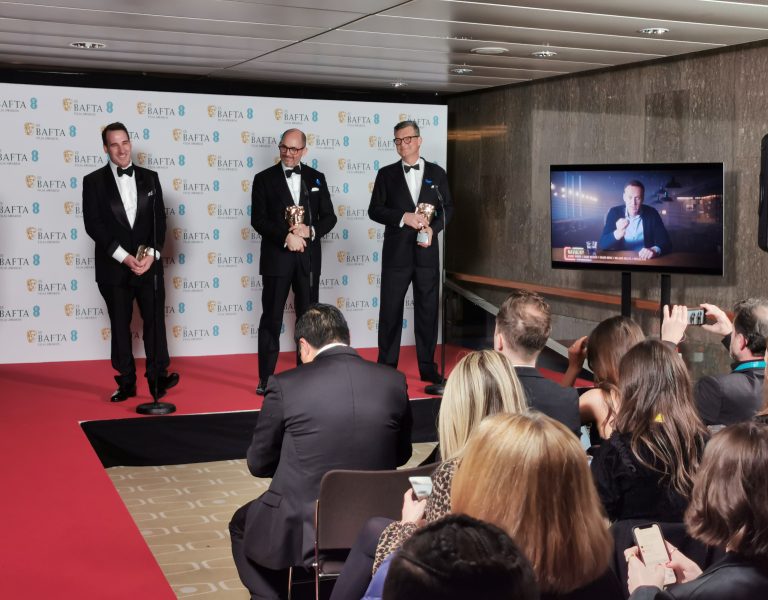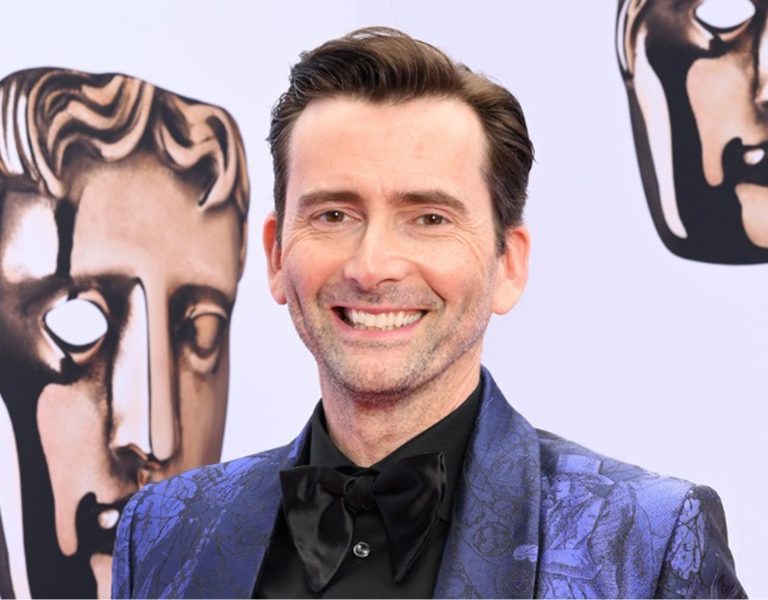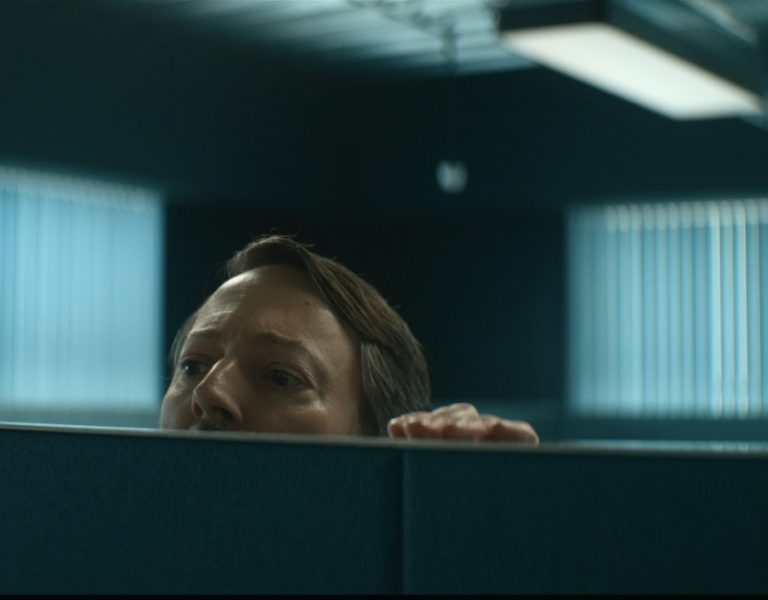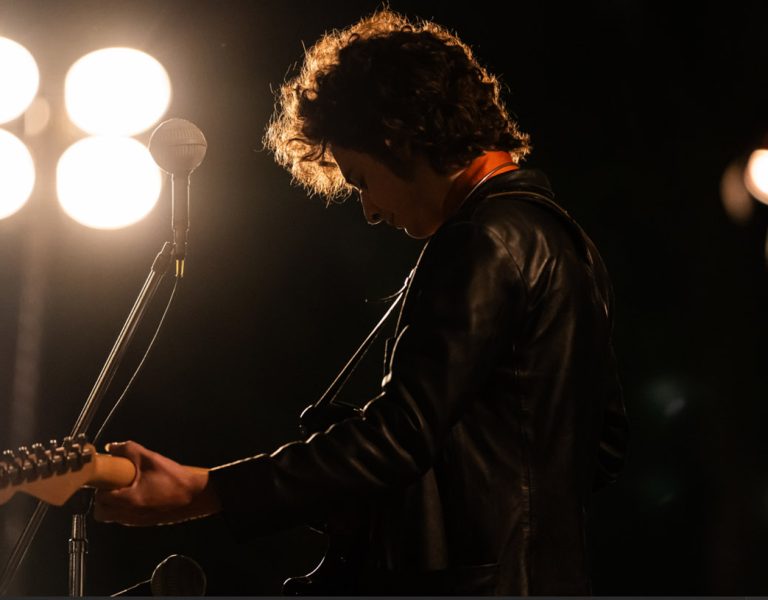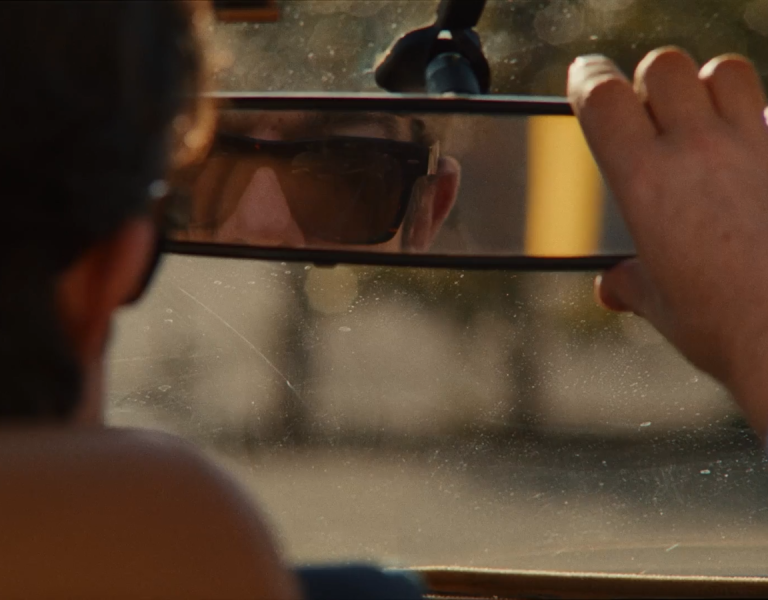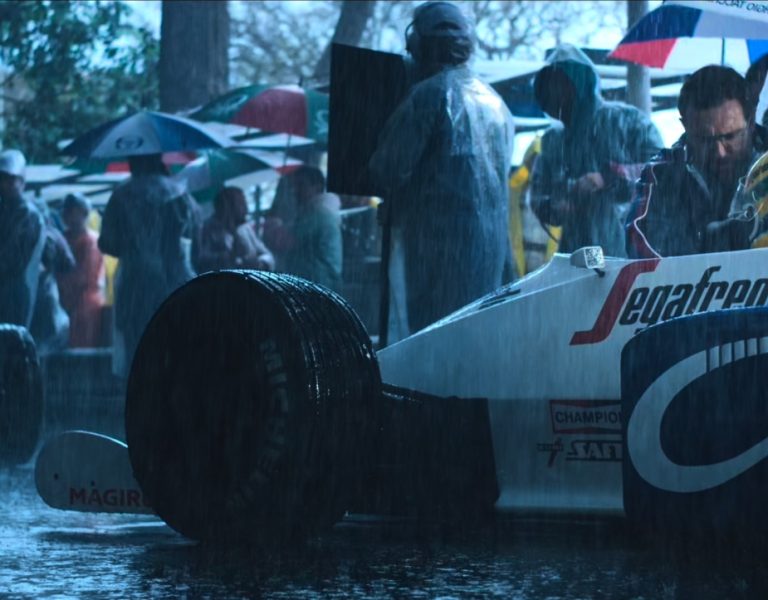Crowning the creatives
Craft took centre stage as the leading lights of the small screen gathered to celebrate. British Cinematographer was at the BAFTA TV Craft Awards in London to recognise exceptional talent.
“British-made TV is one of this country’s super powers,” BAFTA chair Sara Putt told the BAFTA TV Craft Awards audience who had congregated to honour exceptional craftspeople. While recognising the tough times some in the industry are experiencing and the resilience on show, her opening speech highlighted BAFTA’s role as being to “celebrate, inspire and support” those helping bring captivating stories to the screen.
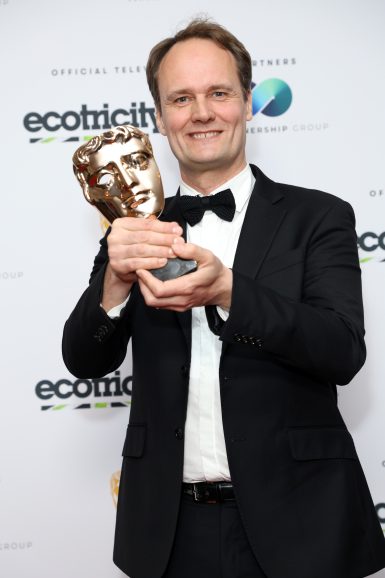
Stephan Pehrsson BSC was one of the creatives recognised on the night, scooping the Photography & Lighting: Fiction award for Black Mirror episode “Demon 79”, and beating off competition from Eben Bolter ASC BSC (The Last of Us); Ed Rutherford BSC (The Long Shadow); and Rik Zang SBC (The Sixth Commandment).
To create the distinctive look of the winning episode – set in 1979 Northern England and following a sales assistant who must commit terrible acts to prevent disaster – Pehrsson and director Toby Haynes, who met at film school, watched many ‘70s British horror films. “They had a funny tone to them we tried to capture through weird framings and odd choices of light but in a coherent way that made sense to us and the way the main character experiences the world,” Pehrsson told us.
“Demon 79” was also successful in the drama writing category, with the work of series creator and writer Charlie Brooker and episode co-writer Bisha K. Ali (featured in lead image) coming out on top. After collecting the award, Brooker – who first worked with Pehrsson on the “USS Callister” Black Mirror episode – told us about their latest collaboration. “On “Demon 79” Stephan did a really good job of evoking ‘70s Hammer Horror while it also feeling contemporary. It has a real confidence to it. Sometimes you see episodes and they need a lot of polishing up in post but this looked amazing from the start.”
Bisha K. Ali also commended Haynes and Pehrsson for their work and “being such a great tag team – I learnt a lot just watching them work.”
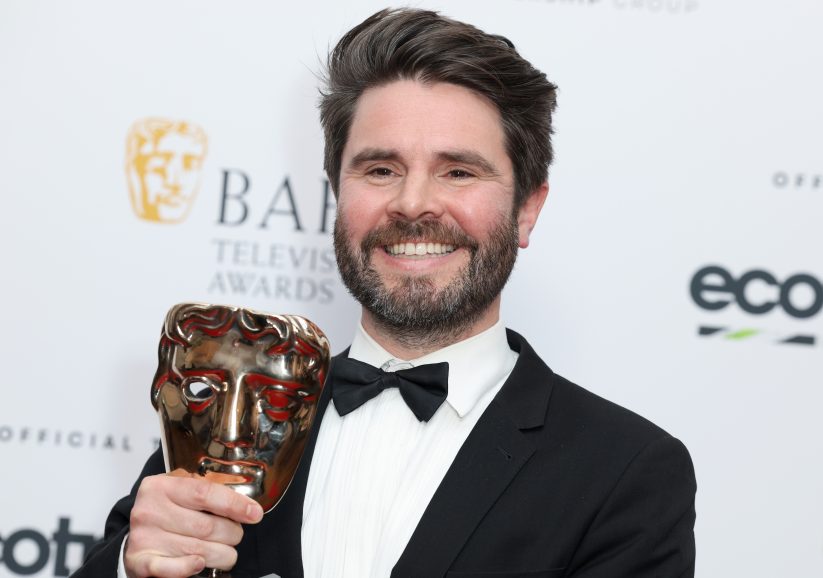
In the Photography: Factual category, Benedict Sanderson’s lensing of The Detectives: Taking down an OCG was triumphant. The documentary – which follows a specialist police unit as they bring down one of Greater Manchester’s most violent and notorious crime groups: The Adam OCG – was up against the talented Bertie Gregory, Tom Walker and Anna Dimitriadis (Animals Up Close With Bertie Gregory); Jean-Louis Schuller (The Man Who Played With Fire); and Narayan Van Maele and Patrick Smith (Dublin Narcos – directed by Sanderson).
Still buzzing from his win, Sanderson shared his visual approach for the production with us: “It had to be largely handheld but I was pretty strict about using prime lenses. I knew it was going to be very gritty but I wanted to make it look as beautiful and immersive as possible.
“The camera never stops, that was our idea. Never stop filming – the scene’s often not over even when you think it is. This documentary was particularly close to my heart, it took years to make. It was a very high-risk, dangerous production and I couldn’t be happier to have won for it.”
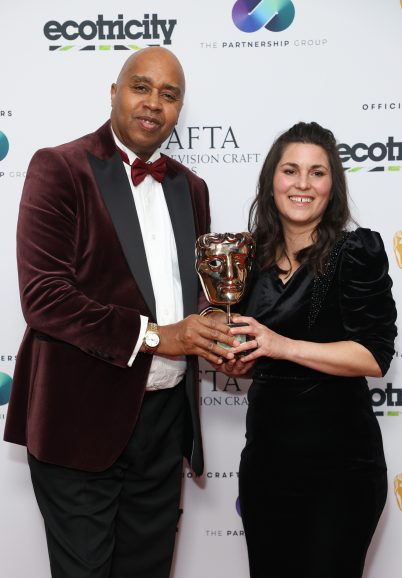
.When asked how she would like to see the industry evolve, Bisha K Ali highlighted “more inclusion and bringing more voices to the table” as vital. Putt’s opening address also echoed this when she urged that even “in tough times we must not roll back on the commitments and drive to make our industry more inclusive, safe, and representative.”
This commitment is exemplified by Mama Youth Project – winner of this year’s BAFTA TV Craft Special Award. Set up by Bob Clarke, the initiative has spent the last ten years training young people from under-represented backgrounds to succeed in the media industry. For Clarke, the award is “great recognition of the years of hard work volunteers and regular contractors have put in to change the lives of young people from challenging backgrounds and at the same time supporting our industry to be more representative. I’d like to thank the over 800 alumni who continue to open doors for those who follow.”
Other craft winners included the editing team behind Once Upon a Time in Northern Ireland (Editing: Factual); Gavin Bocquet and Amanda Bernstein (Production Design for Silo); Sharon Long (Costume Design for The Great); the special and visual effects team behind The Witcher; the sound team behind Slow Horses (Sound: Fiction) and Sam Williams who collected a BAFTA for Editing: Fiction for Slow Horses.
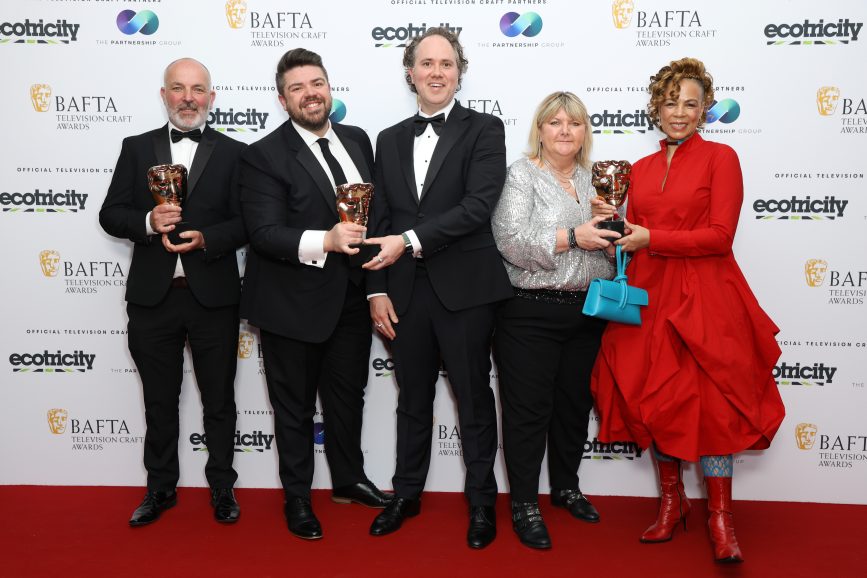
Recognising talent from all areas of a production, not just in front of the camera, was deemed essential by many people British Cinematographer spoke to on the night. “We’re used to seeing celebrities and the big names accepting awards and looking wonderful… but I think sometimes when you hear people talking about the importance of the TV industry it’s easy for their eyes to glaze over and think it’s a bunch of rich lovies sitting around sipping champagne. There is a lot of that but the craft awards recognise that each show is a huge endeavour and a tonne of crafts people are involved,” Brooker told us.
“It’s hard work and there are real physical things being made by craftspeople and that sometimes gets forgotten when we think about the entertainment industry. We do it very well here in Britain and I think it’s important to celebrate. It’s a shame [the BAFTA TV Craft Awards] is not in the main televised awards ceremony but I guess then it would last five hours.”
In a similar vein, Photography & Lighting: Fiction nominee Eben Bolter ASC BSC (The Last of Us) said that while he was at the BAFTA TV Craft Awards “representing one episode for cinematography, I’m also representing my whole crew – camera, grip, lighting. It really does take an army to make these things and it’s great BAFTA helps shine a light on them.”
Visit our website for a full list of the BAFTA TV Craft winners and head to our social channels for more red carpet and backstage interviews with nominees and winners.
